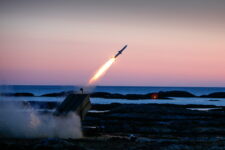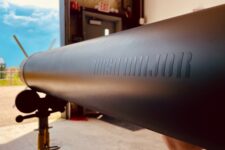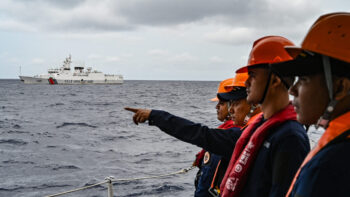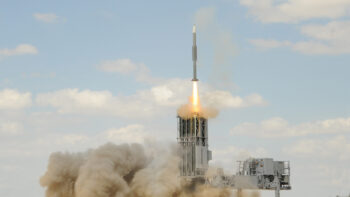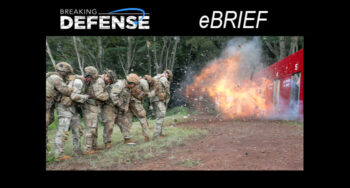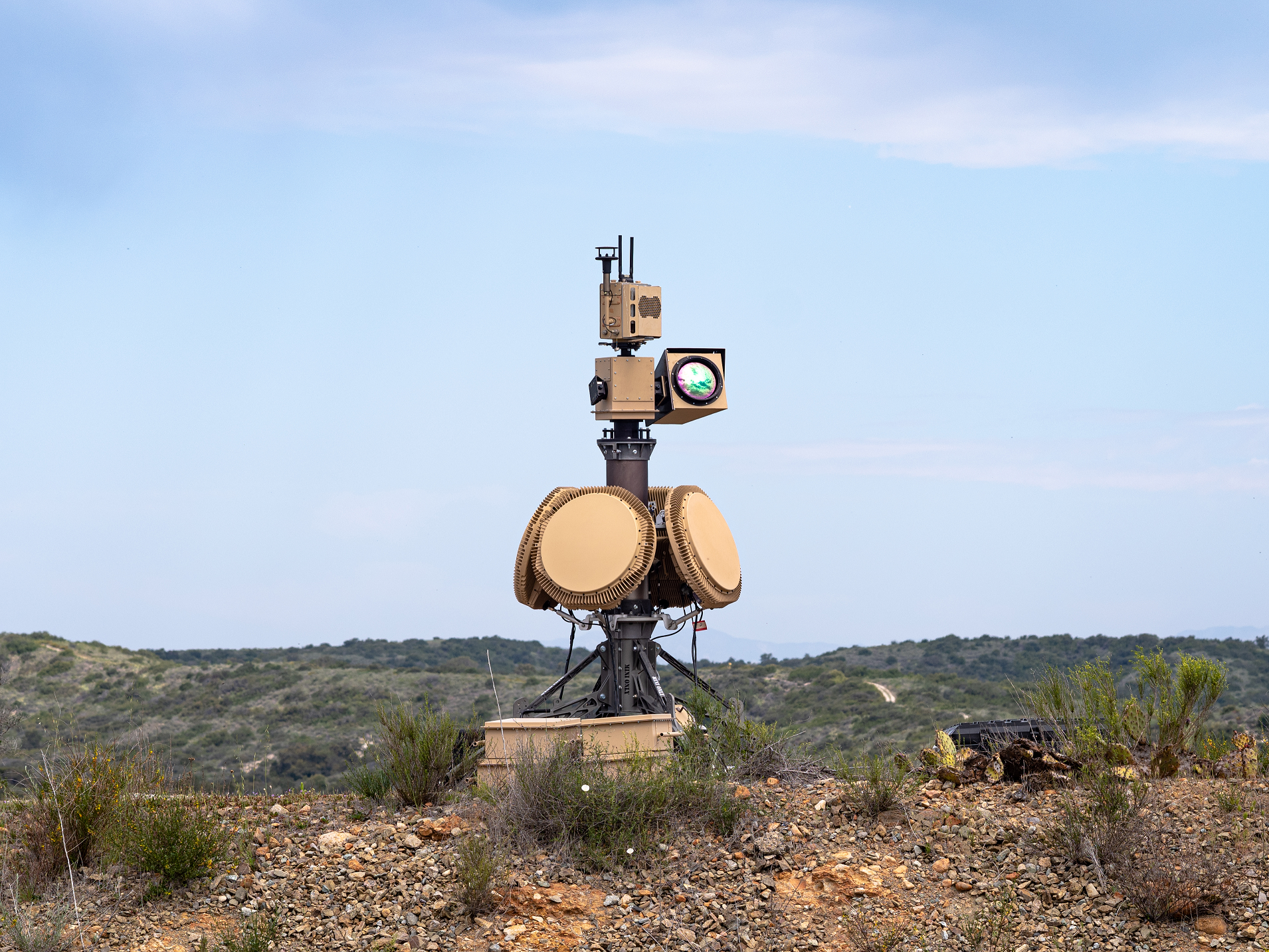
Anduril’s Sentry Tower system. (Anduril)
WASHINGTON: Defense technology business Anduril Industries announced the acquisition of Copious Imaging Tuesday morning, a buy that adds a covert sensing option to the company’s growing force protection portfolio.
The acquisition adds passive sensing capabilities into Anduril’s current AI-enabled technology offerings that detect and classify both drone and ground threats at military bases around the world. The advantage of passive sensing is that, unlike typical radar, it’s harder to detect because it doesn’t emit large amounts of radiation. That’s a critical capability as the US military prepares to fight on increasingly distributed battlefields against adversaries with increased electronic warfare tools.
“The ability to detect and counter these threats in a much more covert way that is much harder to defeat is absolutely critical,” Brian Schimpf, co-founder and CEO of Anduril, told Breaking Defense ahead of the announcement. “So when we think about how this passive sensing fits into where we are today, most of the focus … is very much around, how do we provide that capability that is going to be needed for every expeditionary troop, every tactical group going out, going forward with [the] least [electronic] signature as possible.”
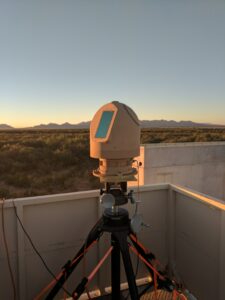
Copious Imaging system. (Courtesy of Anduril)
Schimpf expects Copious Imaging’s passive sensing technology, known as Wide-Area Infrared Sensing with Persistence (WISP), to be an “integral option” to “basically everything we have going forward,” with Copious functioning essentially as the company’s imaging arm. According to the Anduril press release, integrating WISP sensors onto radar-based systems can improve accuracy or be used to replace radars in contested environments.
Anduril has had success selling counter-drone and counter-intrusion technology for protection at military bases across the world. The WISP technology can be used to complement a radar system or as an alternative, depending on the customer’s needs. But the primary use cases will be focused on that base-protection mission.
“Where the Copious technology really shines is there’s a lot of installations … where they can’t actually have radar blasting at those sensitive things,” Schimpf said.
Copious, based in Lexington, Mass., is a spin off of the Massachusetts Institute of Technology’s Lincoln Lab. Anduril would not disclose the terms of the deal.
“Joining forces with Anduril will help get our technology out to the field faster and at greater scale, safeguarding our critical infrastructure and protecting our security forces to make America and its allies safer,” Bill Ross, CEO of Copious, said in the announcement. “It’s a great fit because Anduril and Copious Imaging share a common mission to engineer the most advanced AI-enabled sensing technology for the United States Department of Defense. Together, we can pursue that mission even more effectively.”
Anduril’s acquisition of Copious comes several months after it also purchased Georgia-based Area-I, which produces air launched effects. That acquisition expanded Anduril’s unmanned systems portfolio. Earlier this year, the Pentagon’s Silicon Valley outreach arm, the Defense Innovation Unit, awarded Anduril a 5-year, $99 million contract that allowed the military services to purchase counter-drone capabilities.
“We have a lot of conviction around where the technology could go and, if it existed, what potential it would have. For a company like Copious where they’ve been largely bootstrapped, they’ve had to self-fund a lot of their R&D or get government funding on this, it is harder to realize that ambition around [the] roadmap of technology,” Schimpf said. “When we acquire a company like this, the idea is we want to put money into to so it can realize advanced applications, so that we can develop new ways of sensing.”
China stirred the Pacific pot, Japan powered up and Aussie AUKUS anxiety emerged: 2024 in review
The Chinese military itself wasn’t free from drama, as Beijing cycled through defense ministers and senior officials fell under investigation.


